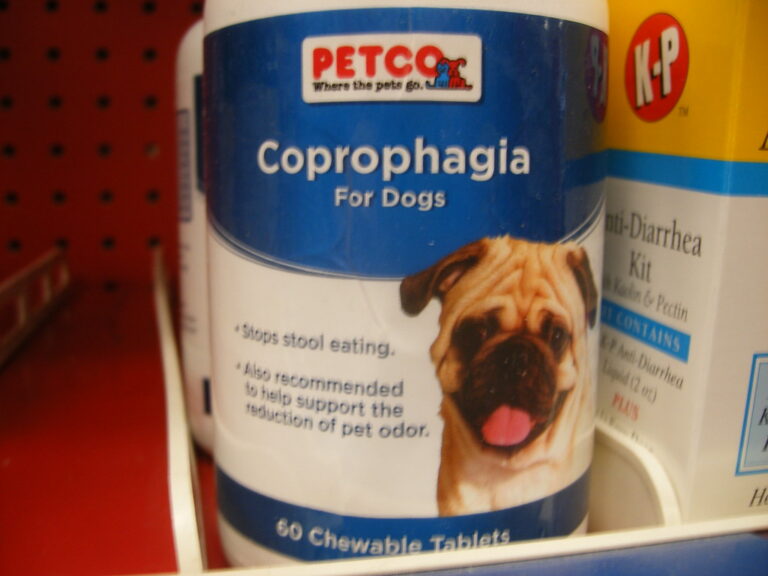The Complete Guide to Wet Dog Food with Probiotics: Benefits, Ingredients, and Top Choices
In recent years, pet parents have become increasingly aware of the importance of gut health for their canine companions. Just as humans benefit from maintaining a healthy balance of gut bacteria, dogs, too can experience improved overall wellness through proper digestive care. Enter probiotic-enhanced wet dog food—a dietary option that combines the palatability and moisture content of wet food with the digestive benefits of beneficial bacteria. This comprehensive guide explores everything you need to know about wet dog food with probiotics and why it might be the right choice for your four-legged friend.
Understanding Probiotics for Dogs
Probiotics are live beneficial microorganisms that, when consumed in adequate amounts, provide health benefits by improving or restoring gut flora. For dogs, a balanced gut microbiome supports proper digestion, nutrient absorption, and immune function.
Dr. Jennifer Coates, DVM, explains: “A dog’s digestive tract contains trillions of bacteria and other microorganisms that play essential roles in digestion, vitamin production, and protecting against pathogens. When this delicate ecosystem becomes disrupted—through stress, illness, antibiotics, or poor diet—digestive issues often follow.”
Probiotics in dog food typically include various strains of beneficial bacteria such as:
- Lactobacillus acidophilus
- Bifidobacterium animalis
- Enterococcus faecium
- Bacillus coagulans
- Lactobacillus casei
Each strain offers unique benefits, from supporting immune function to aiding in the digestion of specific nutrients.
Why Choose Wet Dog Food with Probiotics?
The Unique Benefits of Wet Food Formulations
Wet dog food provides several advantages over dry kibble, particularly when it comes to delivering probiotics:
- Higher moisture content: With typically 70-80% water content compared to 10% in dry food, wet food helps maintain hydration, which is crucial for digestive health and proper probiotic function.
- Better palatability: Dogs generally find wet food more appetizing, making it easier to transition them to a gut-supportive diet.
- Easier digestibility: The softer texture of wet food requires less digestive effort, which can be beneficial for dogs with sensitive stomachs or older dogs with dental issues.
- Protection of probiotic viability: Some research suggests that the moisture and preservation methods used in quality wet foods can actually provide a protective environment for certain probiotic strains.
- Reduced processing: Many premium wet dog foods undergo less extreme heat processing than kibble, potentially preserving more of the probiotic benefits.
Specific Benefits of Probiotics in Wet Dog Food
When delivered through wet food formulations, probiotics can offer numerous health advantages:
Digestive Health Improvements
- Reduced gastrointestinal upset: Regular consumption of probiotics helps stabilize gut flora, reducing instances of diarrhea, constipation, and gas.
- Better stool quality: Many pet owners report firmer, more consistent stools after switching to probiotic-enhanced foods.
- Increased enzyme activity: Some probiotic strains help produce digestive enzymes that improve nutrient breakdown and absorption.
Immune System Support
Approximately 70% of a dog’s immune system is located in the gut. By supporting gut health with probiotics, wet dog food can help strengthen your pet’s natural defenses against pathogens.
Research published in the Journal of Veterinary Internal Medicine found that dogs receiving certain probiotic strains showed increased immunoglobulin production, indicating enhanced immune function.
Allergy Management
For dogs with food sensitivities or allergies, probiotic-rich wet food may help reduce inflammatory responses and alleviate symptoms. The combination of limited ingredients in many specialized wet formulas plus the anti-inflammatory effects of beneficial bacteria can be particularly helpful for dogs with chronic skin or digestive issues.
Recovery Support
Veterinarians often recommend probiotic-enhanced wet food for dogs recovering from:
- Antibiotic treatments
- Gastrointestinal infections
- Surgery
- Periods of stress (boarding, moving, etc.)
The soft texture makes it easier for recovering pets to eat, while the probiotics help restore gut flora that may have been disrupted.
Did You Know?
Studies show that certain probiotic strains can reduce the recovery time from acute diarrhea in dogs by up to 50% compared to dogs not receiving probiotic support.
Key Ingredients to Look For
When selecting wet dog food with probiotics, the ingredient list tells an important story about quality and efficacy:
Probiotic Strains
Look for products that specify:
- The exact strains included (not just “probiotics” generally)
- Colony-forming units (CFUs) – indicating the number of viable bacteria
- Multiple strains rather than just one type
Prebiotics
These non-digestible food ingredients feed beneficial bacteria and help them thrive. Common prebiotics in quality wet dog foods include:
- Inulin
- Fructooligosaccharides (FOS)
- Beet pulp
- Chicory root
Quality Protein Sources
Protein provides essential amino acids that support gut lining health. Superior wet dog foods with probiotics typically feature:
- Named animal proteins (like “chicken” rather than “meat”)
- Human-grade protein sources
- Multiple protein sources for amino acid variety
Limited Artificial Additives
For optimal gut health, many veterinary nutritionists recommend avoiding products with:
- Artificial colors
- Chemical preservatives
- Excessive fillers
- Added sugars
Addressing Common Digestive Issues with Probiotic Wet Food
Different formulations of probiotic wet dog food target specific health concerns:
For Dogs with Chronic Diarrhea
Specialized formulas often include:
- Higher fiber content
- Specific probiotic strains like Saccharomyces boulardii
- Limited ingredients to reduce potential triggers
- Easily digestible proteins like chicken or turkey
For Seniors with Digestive Slowdown
Older dogs benefit from wet food with:
- Higher probiotic counts
- Added digestive enzymes
- Softer texture for easier eating
- Anti-inflammatory ingredients like omega-3 fatty acids
For Dogs Post-Antibiotics
After antibiotic treatment, look for wet food featuring:
- Multiple probiotic strains to repopulate gut flora
- Higher levels of prebiotics to support probiotic growth
- Gentle, limited-ingredient formulations
How to Introduce Probiotic Wet Food to Your Dog’s Diet
Transitioning to any new food requires care, especially when it contains active probiotic cultures:
- Start gradually: Mix small amounts of the new probiotic wet food with your dog’s current diet, increasing the proportion over 7-10 days.
- Monitor stool quality: Some dogs may experience temporary changes in stool consistency as their gut adapts to the new beneficial bacteria.
- Consider a loading period: For dogs with significant digestive issues, veterinarians sometimes recommend a higher initial amount of probiotic food before transitioning to a maintenance level.
- Maintain consistency: Probiotics work best when administered regularly, so establish a consistent feeding schedule.
- Store properly: Follow package instructions for storing opened wet food to maintain probiotic viability.
Top-Rated Wet Dog Food Options with Probiotics
While specific product recommendations should be tailored to your dog’s individual needs and veterinary advice, several brands have developed reputation for quality probiotic wet food formulations:
- Premium Digestive Care Lines: Major brands like Hill’s, Royal Canin, and Purina Pro Plan offer prescription and over-the-counter wet food lines specifically formulated with probiotics for digestive health.
- Holistic and Natural Brands: Companies such as The Honest Kitchen, Stella & Chewy’s, and Merrick offer wet food options with naturally-occurring and added probiotics, often combined with whole food ingredients.
- Limited Ingredient Options: Brands like Natural Balance and Blue Buffalo provide limited-ingredient wet foods with probiotics, ideal for dogs with food sensitivities.
- Fresh Refrigerated Options: Newer entries to the market like Freshpet include probiotic-enhanced wet food kept in refrigerated sections, claiming higher viability of beneficial bacteria.
When to Consider Probiotic Supplements Instead
While probiotic wet food offers many benefits, some situations might call for separate supplementation:
- When higher doses of specific strains are needed for therapeutic purposes
- During acute digestive crises requiring immediate intervention
- When your dog’s primary diet works well but probiotic enhancement is desired
- For extremely picky eaters who resist food changes
Always consult your veterinarian before adding supplements to your dog’s regimen.
Final Thoughts: Is Probiotic Wet Food Right for Your Dog?
The decision to incorporate probiotic wet food into your dog’s diet should be based on their individual needs, health status, and preferences. Dogs that may particularly benefit include:
- Those with recurring digestive issues
- Seniors with declining digestive efficiency
- Dogs recovering from illness or antibiotic treatment
- Pets with compromised immune systems
- Dogs with food sensitivities or allergies
- Picky eaters who need nutrient-dense options
As with any dietary change, consulting with your veterinarian is recommended, especially for dogs with existing health conditions. Your vet can help determine whether the benefits of probiotic wet food align with your pet’s specific health needs and recommend appropriate brands and feeding guidelines.
By understanding the science behind probiotic wet food and carefully selecting quality products, you can potentially improve your dog’s digestive health, boost their immune function, and enhance their overall quality of life through better nutrition. After all, a healthy gut often leads to a happier, more active canine companion.
This article is provided for informational purposes only and is not a substitute for professional veterinary advice. Always consult with your veterinarian before making any changes to your pet’s diet, especially if they have existing health conditions.








